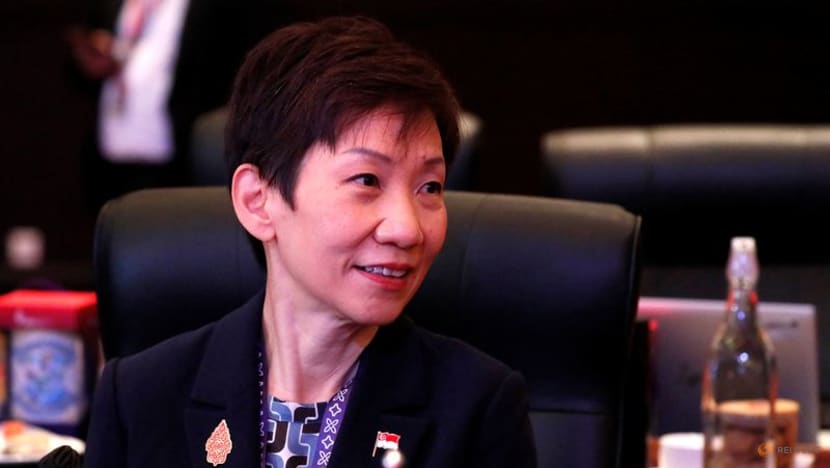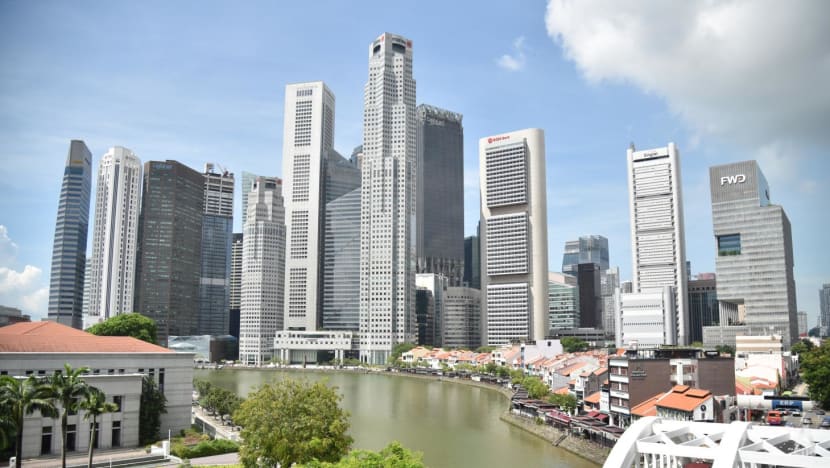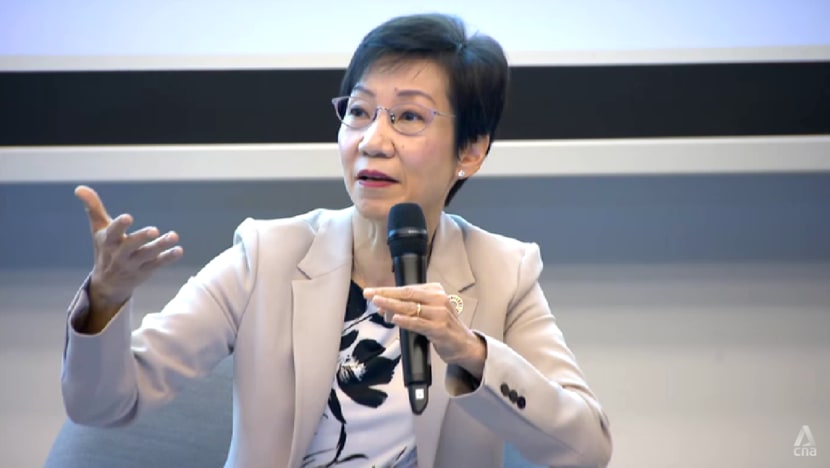Companies must seize opportunities to go green and stay competitive, or risk losing out: Grace Fu
Firms should see this as an opportunity to develop new knowledge and value propositions, as Singapore charts its way to a more sustainable future.

SINGAPORE: Companies here have to take advantage of government initiatives to go green, or risk losing out as these grants and subsidies will not be available forever, said Minister for Sustainability and the Environment Grace Fu on Tuesday (Mar 12).
Firms should see such help as an opportunity to develop new knowledge and value propositions, beyond just a restructuring fix, Ms Fu said during a dialogue organised by the Singapore Business Federation and Institute of Singapore Chartered Accountants.
The dialogue panel included climate scientist Winston Chow of the Singapore Management University, and Dr Bicky Bhangu, president of Southeast Asia, Pacific and South Korea at Rolls-Royce.
SUPPORTING COMPANIES TO GO GREEN
There are plenty of schemes available to help different businesses, from large companies to micro-SMEs (small- and medium-size enterprises), Ms Fu said.
“Ultimately, we want to really support companies to go on this journey. First, we need companies to reduce their carbon footprint, so that as a country we can meet our 2050 goal,” she added, referring to Singapore's aim to achieve net zero emissions by 2050 to mitigate climate change.
“Second, (it is really) a way to encourage them to grow and to be ready for a new demand for green products and services.”
This comes as Singapore charts its way towards a more sustainable future.
While Singapore needs to work around constraints such as land and manpower, there is “tremendous scope to leapfrog or to really gain in this green economy”, said Ms Fu.
“We need to, in the transition, make sure that Singapore remains competitive, and right now there are many external challenges. That's why we are putting in resources to have this transition.”
Giving the example of importing renewable energy from the region, she said the government has funds set aside and hopes to help businesses seize new opportunities.
“If we don't have a government kind of fund ready to invest in that, it's going to spread the costs on businesses. No single business operator is going to say: "Hey, I'm going to be the brave one and invest in that infrastructure',” she said.

ACCOUNTANTS CAN PLAY BIGGER ROLE IN SUSTAINABILITY
The dialogue Ms Fu spoke at was aimed at addressing businesses and accountants on their changing roles in a world where sustainability is a priority.
For the accounting profession, it may feel like there are more reporting requirements and deadlines ahead, said Ms Fu. “And worse still, the standards are still evolving.”
She was referring to a recent announcement that Singapore will require all listed firms to make climate-related disclosures from financial year 2025, with large non-listed firms following suit two years after that.
But Ms Fu, who has a background in accountancy, stressed that accountants play a key role in helping companies go green.
She urged accountants to open up their career options by playing a bigger role in their firms’ sustainability efforts.
“This is a chance for you to really widen your scope, your value add,” she said.
“This is a place in industry where you are able to leapfrog because it's very new.”

WHERE THE WORLD STANDS ON CLIMATE CHANGE
Besides incentives, Singapore has come up with various moves to encourage companies to decarbonise, such as implementing a carbon tax.
Ms Fu noted that some businesses are already feeling the effects of climate change.
She added: “Do we want to wait and be swept - and say, ‘just wait, hold on, let's see who else is doing and how fast they're moving before we start.’
“Or do we say: 'Hey, we need to do this anyway, so might as well make full use of the opportunities that come our way.’”
At the dialogue, Ms Fu also spoke about how the COP28 climate talks in Dubai had been relatively successful.
On the first day of the climate summit, delegates agreed to formally establish a loss and damage fund to help vulnerable countries who are suffering the effects of climate change.
Representatives from nearly 200 countries also agreed to a deal that calls on nations to transition away from fossil fuels, after two weeks of fierce negotiations.
The Dubai conference also saw a global stocktake of where the world stands on climate action, and how countries have fared in keeping global warming to the crucial 1.5 degrees Celsius limit called for in the Paris Agreement.
“We all agree that this is the goal that we will try to reach and we have specific recommendations on the transition,” said Ms Fu.
“So it's really a step towards just saying that all the parties should aim for this goal, to all the parties should do this, on mitigation particularly.”


















